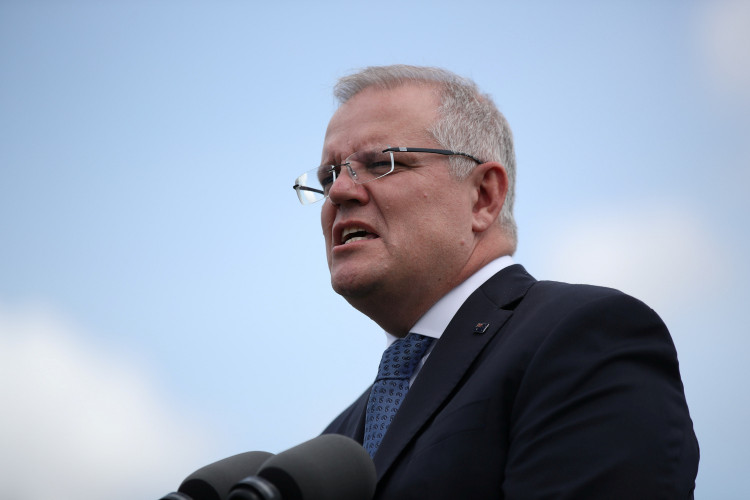Australia's prime minister Thursday retaliated to a list of grievances raised by China regarding his country's diplomacy and investment policies saying "we will always be Australia."
Tensions between Australia and its largest trading partner China have mounted this year with China imposing a series of trade reprisals after Australia called for an international inquiry into the coronavirus.
Prime Minister Scott Morrison on Thursday said Australia acted in its own interests. It would not change its policies including speaking up on human rights.
"If this is the cause for tension in that relationship, then it would seem that the tension is that Australia is just being Australia," Morrison said an interview with the Seven Network.
Chinese foreign ministry spokesman Zhao Lijian earlier this week listed complaints about Australia's actions including "mistakes on issues concerning China's core interests like Hong Kong, Xinjiang and Taiwan," actions in the Human Rights Council, and support for Taiwan entering the World Health Organization.
China also criticized Australia's action against foreign interference, and being the first country to ban Chinese companies from participating in its 5G telecommunications network.
Australia added it hoped its new military pact with Japan wouldn't further sour its already strained relationships with China.
Australia on Sunday signed the Regional Comprehensive Economic Partnership (RCEP) along with China and 13 other Asia-Pacific countries. RCEP is now the world's largest trading bloc, larger than even the European Union.
But on Tuesday Morrison signed the Reciprocal Access Agreement with Japan that becomes a framework for the two countries' troops to conduct joint operations and training. The agreement will also see shared military bases and exercises, including those in the South China Sea.
The Global Times, a tabloid owned by the Communist Party of China, said the agreement "clearly targets China and "further accelerates the confrontational atmosphere in the Asia-Pacific region and negatively."
Australian Trade Minister Simon Birmingham said the "ball is very much in China's court" to resolve its festering trade tensions with Australia.
He hopes the signing of RCEP will help resolve the worsening trade dispute between Australia and China. Birmingham also said the Japan agreement should have "no bearing" on Australia's relationship with China. Birmingham said Australia wanted a "mutually beneficial relationship" with China.
"It doesn't mean that we will compromise at all in terms of our values, our security, our interests, but it does mean that the door is open from the Australian perspective," said Birmingham. "We have reached out at every possible level and pathway."
But Zhao said China saw the Japan agreement as nothing less than hostile. He says China bears no blame for the breakdown in relations and for any worsening in bilateral ties.
"(They) have subsequently taken a series of wrong moves related to China, which is at the root cause of China-Australia relations taking a sharp downturn and stuck in the current difficult situation...the responsibility for causing this situation doesn't lie with China at all," Zhao said.
Zhao said Australia had displeased China in three areas - Morrison's decision to call for an international inquiry into China's role in the COVID-19 pandemic, Australia's attempts to suppress China's alleged foreign interference in its domestic politics and its commenting on human rights abuses in Xinjiang and Hong Kong.
"These practices have grossly interfered in China's internal affairs and seriously hurt the feelings of the Chinese people," said Zhao.






